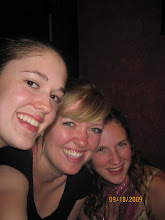
What does it mean to be indigenous?
Does it mean you have darker skin or defining facial characteristics? Do you dress a certain way or have a certain level of education? How are you viewed by the rest of the world?
There are large indigenous populations throughout the world, predominantly in the Americas, and there are a wide variety of traditions practiced by all. So, what is it that defines them as being indigenous? It is a challenging question: one that provokes interesting thought and an array of stereotypes.
The United Nations defines indigenous people as ¨those which having a historical continuity with pre-invasion and pre-colonial societies that developed on their territories, consider themselves distinct from other sectors of societies now prevailing in those territories, or parts of them. They form at present non-dominant sectors of society and are determined to preserve, develop and transmit to future generations their ancestral territories, and their ethnic identity, as the basis of their continued existence as peoples in accordance with their own cultural patterns, social institutions and legal systems.¨
I feel that this definition omits some other important, defining characteristics of indigenous people and it also leaves space for assumptions. In one of my classes last semester, during a conversation about the Zapatistas in Mexico, my professor said Subcommandante Marcos is not indigenous because he is very well educated. He actually isn´t indigenous and he is very well educated but the level of education a person has is not what defines them as being indigenous. This professor of mine may have been trying to state something else and simply misconstrued the context of her statement. Either way, I think it is important to know what makes indigenous people indigenous. I think how they are perceived is a significant factor in them being a marginalized part of society.
I would like to hear your opinions on what your view of indigenous people are. Send me an email or you can post a comment at the bottom of my blog. Thanks :)



